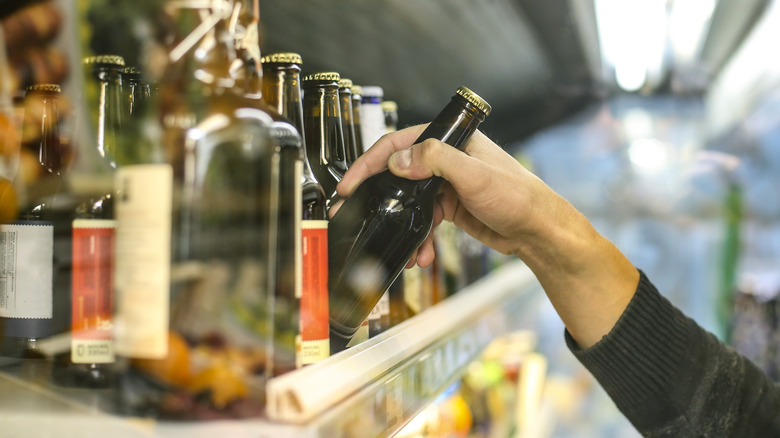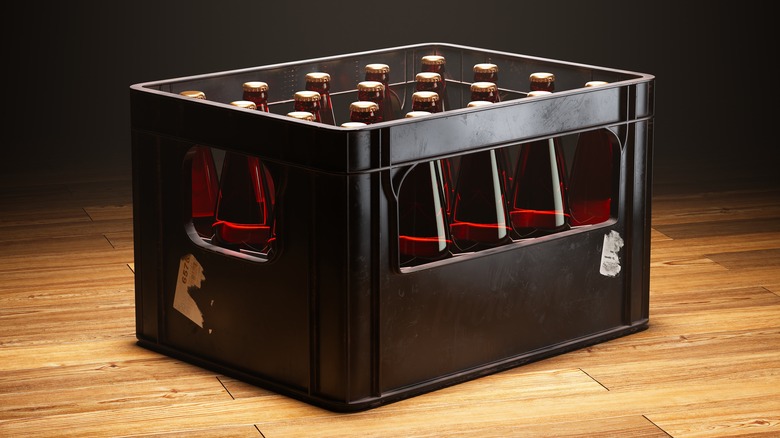What Happens If You Store Beer At Room Temperature For Too Long
When you bring a 24-pack of beer home from the grocery store, do you immediately unpack it all and organize it in the fridge? Or do you bring it to the garage and forget about it until you want it? Different strokes for different folks — either habit works. Beer is shelf-stable and extended storage at room temperature won't cause it to spoil. Still, while these conditions don't necessarily damage beer, over time, a lukewarm environment won't preserve beer's quality like refrigeration will.
To be clear, room temperature means 68 to 72 degrees Fahrenheit. It does not mean "whatever temperature a given room happens to be." If you're stashing your six-pack in the trunk of a hot car or by the window on your covered porch, you've got about a week to drink it before the brew turns skunky or loses flavor altogether. This occurs because, after an extended tenure in your cupboard or garage, oxidation starts taking place inside the bottle.
During this process, natural compounds in the beer react with oxygen trapped inside the bottle, which changes the chemical composition, causing even a high-quality brew to deteriorate and become musty and dull. This unpleasant flavor profile is caused when the hops break down, opening up flavor notes that are unwelcome rather than complex. Once oxidation occurs, bacteria can begin to grow and yeast can form, which reduces the beer's carbonation and increases its alcohol content.
Help your brew pull through
What counts as too long when it comes to storing beer at room temperature? Several months is the limit, although after about two weeks the aroma and taste will lose their peak quality. After a month, your brewski starts to enter the land of "not as fresh." To ensure a positive sipping experience, enjoy your beer within two months of the bottling date, which should be printed on the bottle or can.
For maximum longevity, store your beer in a cool, dry place away from direct sunlight. Keeping it consistently between 50 and 55 degrees Fahrenheit (aka cellar temperature) is ideal. To stave off premature oxidation, store your beer upright. This reduces the amount of air in the bottle or can that's in contact with the surface of the beer.
Colder doesn't always mean better when it comes to storing and serving beer though. Common lighter beers like Budweiser, Miller, and Coors Lite benefit from a super-chill 35- to 40-degree serving temp, but wheat beers, IPAs, lagers, pilsners, porters, stouts, strong ales, and sours benefit from a slightly warmer temperature of 40 to 55 degrees to bring out their full flavor. It's also worth noting that different beers age at different rates. Any brew that clocks in at 8% ABV or above will hold up longer at room temperature, as will smoked or sour beers. Amber lagers, pale ales, and hoppy IPAs all deteriorate the quickest — even if they tote an 8% ABV.

